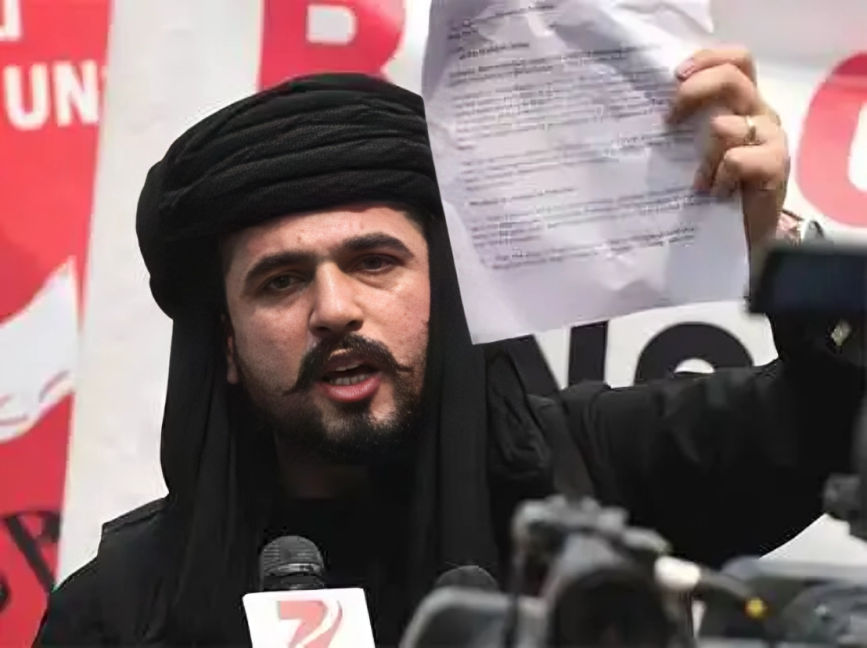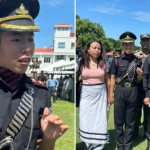In a dramatic escalation of the decades-long struggle for autonomy, Baloch leader Mir Yar Baloch declared Balochistan’s independence from Pakistan on Wednesday, marking a pivotal moment in the region’s turbulent history. The announcement was accompanied by sweeping protests across the province, where thousands of people gathered in solidarity, demanding freedom and an end to decades of alleged state-sponsored oppression.
Mir Yar Baloch, a long-time activist for Baloch rights, stated that the people of Balochistan had delivered a “national verdict” rejecting Pakistani rule. He appealed to the international community — especially India — to recognize Balochistan as a sovereign nation and to support their cause diplomatically and politically. He further called for international pressure on Islamabad to address the region’s long-standing human rights grievances.
Also Read: Should India Recognize Balochistan as an Independent Country?
The declaration was underscored by powerful imagery of large public gatherings, with demonstrators waving Baloch flags and chanting pro-independence slogans. These protests, among the largest in recent years, reflect widespread frustration in Balochistan — Pakistan’s largest yet most underdeveloped province — over issues ranging from political marginalization to economic exploitation.
Balochistan has been at the center of a simmering separatist conflict for decades. Armed groups like the Baloch Liberation Army (BLA) have stepped up operations in recent months, targeting Pakistani security forces and Chinese investments tied to the China-Pakistan Economic Corridor (CPEC). The Gwadar Port — a key hub in the CPEC project — handles a significant portion of Pakistan’s maritime trade, making it a strategic asset and a point of contention between the state and Baloch insurgents.
Mir Yar Baloch also voiced support for India’s claims over Pakistan-occupied Jammu and Kashmir, urging global powers to press Pakistan on both fronts. He called for the opening of a Balochistan office and embassy in New Delhi, indicating an intent to build formal diplomatic ties with India.
His declaration has cast a spotlight on Pakistan’s human rights record in Balochistan. Reports from organizations like Human Rights Watch have chronicled enforced disappearances, extrajudicial killings, and systemic abuses allegedly committed by Pakistani security agencies, including the Inter-Services Intelligence (ISI) and Frontier Corps (FC). In 2018, the Balochistan National Party (Mengal) submitted a list of over 5,000 missing persons to the federal government — a grim testament to the scale of the crisis.
The geopolitical significance of Balochistan is immense. As the cornerstone of the $60 billion CPEC, the province is vital to China’s Belt and Road Initiative. Yet, Baloch separatists view these projects as exploitative, arguing that locals have seen little benefit from the influx of foreign investment. The BLA has targeted high-profile Chinese interests in the past, including the 2019 attacks on the Pearl-Continental Hotel in Gwadar and the Chinese consulate in Karachi.
Islamabad has not yet issued an official response to the independence declaration. However, tensions are expected to escalate, especially given the timing — with Prime Minister Shehbaz Sharif currently in China for diplomatic engagements. The situation could complicate Pakistan’s standing in ongoing negotiations regarding the future of the CPEC Authority, whose dissolution had been previously approved in principle.
As the world watches the unfolding developments in Balochistan, analysts warn of potential instability in the region unless international actors step in. The question remains whether global powers will prioritize human rights and self-determination or continue to navigate cautiously around Pakistan’s strategic alliances.
The declaration by Mir Yar Baloch marks a watershed moment — one that may redefine the geopolitical contours of South Asia in the coming months.













